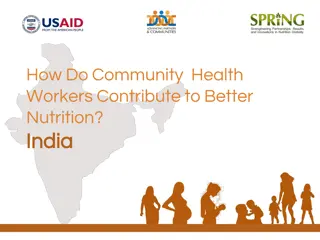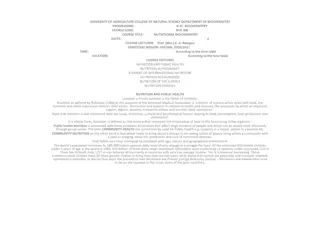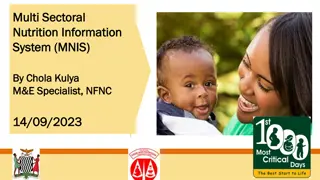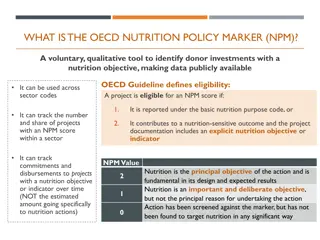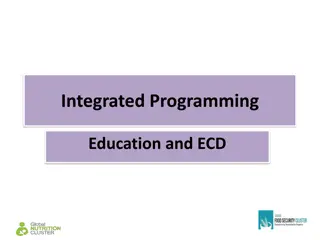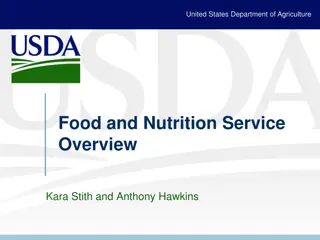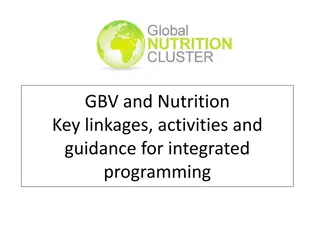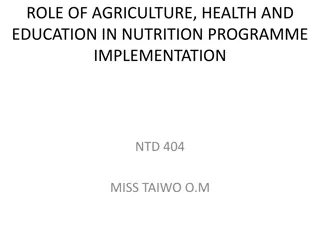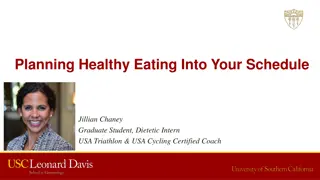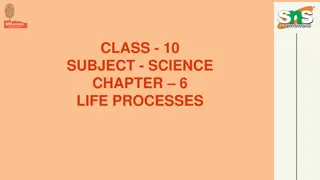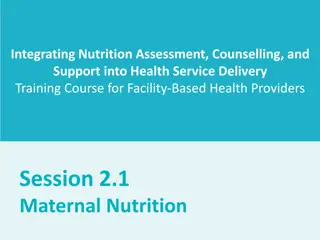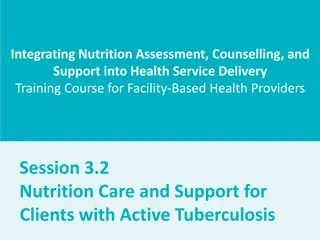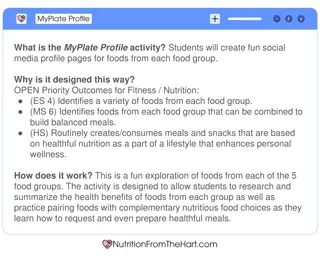Understanding Healthy Nutrition Choices
Healthy foods include a variety of nutrient-rich options such as fruits, vegetables, whole grains, lean proteins, and low-fat dairy products. Carbohydrate foods can be found in sources like fruits, whole grains, and legumes. Protein-rich foods include meat, fish, poultry, dairy, and plant-based proteins. Eating healthy foods is crucial for overall well-being, providing essential nutrients, supporting bodily functions, and reducing the risk of chronic diseases.
Download Presentation

Please find below an Image/Link to download the presentation.
The content on the website is provided AS IS for your information and personal use only. It may not be sold, licensed, or shared on other websites without obtaining consent from the author. Download presentation by click this link. If you encounter any issues during the download, it is possible that the publisher has removed the file from their server.
E N D
Presentation Transcript
Do Now: 1. What are healthy foods? 2. List three carbohydrate foods. 3. List three protein foods. 4. Why is it important to eat healthy foods?
Classes of Nutrients Carbohydrates Fats Proteins Vitamins Minerals Water
Protein Needed to build and repair body structures Regulate processes of the body Meat, fish, poultry, and dairy are highest in protein Recommended 35-105 grams/day (10-30% of daily intake)
Carbohydrates Preferred energy source Recommended 158-228 grams/day (45-65% of daily intake) Includes starches, complex carbs, and added sugar
Fat Calories from fat Limit amount of fat in diet Recommended 31-46 grams/day (20-30% of daily intake) Total fat: number of fat grams per serving Unsaturated fat Saturated fat: Unhealthy fat Trans fat
Fiber Indigestible carbohydrate Aids in elimination Helps lower cholesterol Recommended: minimum 15 grams per day
Vitamins Water Body is mostly water Need water to stay healthy Minimum amount of water per day is 1.5 L or 7 cups Need more if exercise, sick, or it s hot outside Thirst is a late sign of not being hydrated Substances that are required for many different bodily functions Don t supply any energy 13 essential vitamins: body cannot make them need to eat them A, B1, B2, B3, B5, B6, B12, biotin, folate, C, D, E, K
Sodium Cholesterol Amount (mg) of cholesterol What percent of recommended daily value Type of fat Amount of salt Should be < 2400 mg/day Teaspoon of table salt




